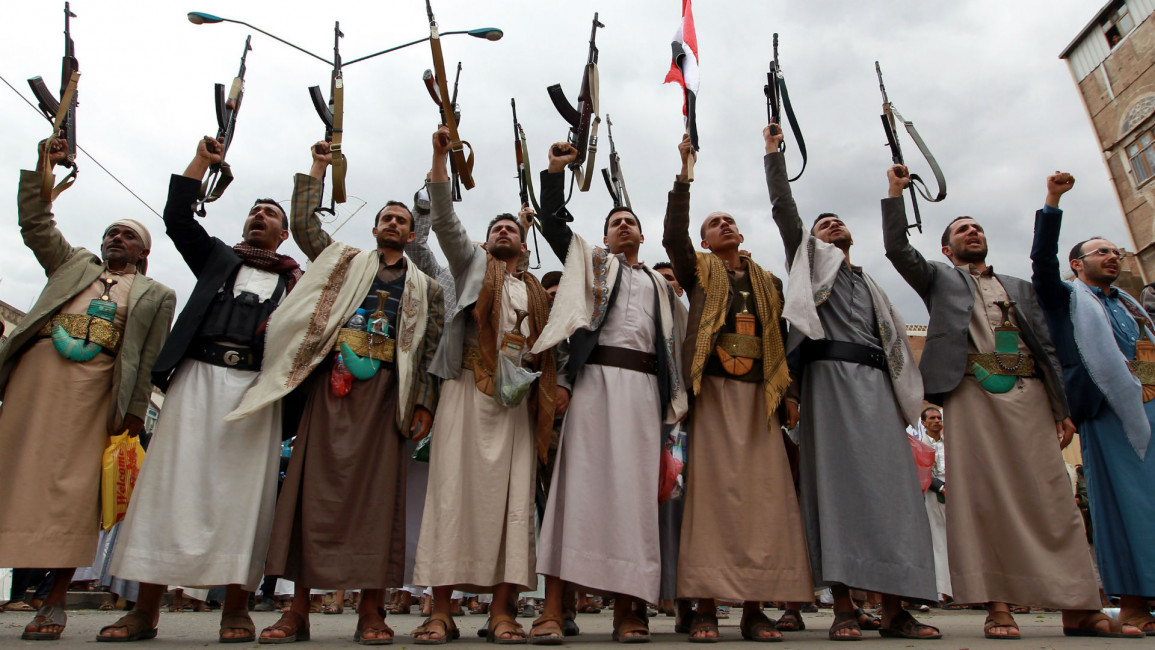
The Saudi-Houthi war: fighting to a standstill in Yemen
The Saudi-led coalition attacks on Yemen are ostensibly to save president-in-exile Abd Rabbo Mansour Hadi from the Zaydi Houthi rebellion. But the operation has exacerbated and regionalised a protracted domestic power struggle, which has emerged since former president Ali Abdullah Saleh resigned in 2011.
Even worse, Yemen is now heading for a humanitarian catastrophe.
Alliances on the ground are messy. Houthis are fighting alongside military units loyal to Saleh, with whom they engaged in six brutal wars between 2004 and 2010. Hadi has a loose coalition, including Yemen's Sunni Islah party and the southern secessionist movement, Hirak al-Janubi.
The Houthis and al-Qaeda in the Arabian Peninsula (AQAP) are also fighting each other.
The power struggle is about control of the state, not a sectarian conflict or the latest proxy war between Riyadh and Tehran. Its roots lie in the breakdown of the Gulf Cooperation Council (GCC) Initiative, which transformed Yemen's brief revolutionary moment in early 2011 into a negotiated transition process with the promise of fundamental reforms. The deal remained dominated by old regime elites and failed to institute an inclusive power-sharing arrangement.
The Houthis positioned themselves as champions of the unfulfilled aspirations of the 2011 revolution. They expanded their control over northern areas and, after weeks of popular protests, seized control of the capital Sanaa in September 2014. Hadi acquiesced to Houthi demands, temporarily containing the escalation. However, the truce quickly fell apart.
Houthi rebels seized the presidential palace and forced Hadi to resign after he had attempted to push through a draft constitution that would have excluded them. The Houthis' actions led many Yemenis to believe they were at the end of a slow-motion power grab. Hadi later fled to Aden and reclaimed the presidency, setting up conditions for the Saudi intervention.
| Amid dim prospects for a ceasefire, an equitable power-sharing agreement is the only option. |
Stability is, perhaps, last among the House of Saud's goals in Yemen. It has consistently undermined Yemen in recent history. Saudi Arabia backed royalist tribes in North Yemen's 1962-70 civil war and dragged in Egypt at the expense of a solution to the conflict.
In 1991, Saudi Arabia expelled around 800,000 Yemeni workers to punish the recently united republic for its stance in the Gulf War, plunging the country into an economic recession.
In the 1994 war of secession, the kingdom supported northern pro-union Islamists and southern Marxist separatists. In 2009, Saudi Arabia became involved in Saleh's sixth war against the Houthis, but the movement wreaked havoc on Saudi territory.
Finally, Riyadh backed the Saleh regime's attempts to stifle the democratic opening in 2011.
Iran, on the other hand, is much less invested in Yemen - a nuance often lost with the common refrain that the Houthis are backed by Iran. The relationship includes low-level funding, training and political support, but not military hardware. Tehran's only reason for getting more invested would be to draw Saudi Arabia into a costly quagmire. However, that could strain improving US-Iran relations.
The Saudi coalition thinks its military campaign will take between one and six months. But a clear-cut victory is highly unlikely. Saudi jets have pulverised the Houthi-controlled Yemeni air force and military sites, but have failed to halt the movement's advance on Aden. Saudi Arabia and Egypt have professed their readiness to mount a high-risk ground invasion, which could easily embroil both sides in a stalemate.
The Houthis have over 100,000 ideologically motivated warriors with years of fighting experience, knowledge of Yemen's mountainous terrain and who are armed with looted hardware from Yemen's army depots.
The country faces a deepening humanitarian crisis, which has not only killed hundreds of civilians, but also serves as a recruitment tool for the Houthis. Although many Yemenis are weary of the Houthis, the Saudi public relations campaign to promote a military intervention of dubious legality is overshadowed by a deep-rooted resentment of the kingdom among many Yemenis.
Amid dim prospects for a ceasefire, an equitable power-sharing agreement is the only option for achieving some degree of stability. Even if the coalition manages to dislodge the Houthis they would be reinstalling a president with questionable democratic legitimacy.
If the aim is, on the other hand to bomb the Houthis to the negotiating table, such a strategy could only work if they were permitted to negotiate on an equal footing - a scenario Saudi Arabia is unlikely to permit.
The best option would be to broker a ceasefire deal with the mediation of countries that maintain ties to both Saudi Arabia and the Houthis, such as Oman or even Germany.
No such ceasefire could last, however, without agreeing, in principle, on a power-sharing formula under which myriad political forces in Yemen - none of which can rule the country singlehandedly - have an equitable seat at the table.
Opinions expressed in this article remain those of the author and do not necessarily reflect those of al-Araby al-Jadeed, its editorial board or staff.



